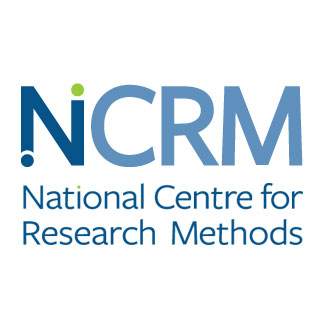
- This event has passed.
Introduction to Longitudinal Structural Equation Modelling with R
18th January 2018 @ 9:30 am - 19th January 2018 @ 5:30 pm

| Course Code | HUB-02-17/18-P-R |
| Organised by | NCRM, University of Southampton |
| Presenter | Dr Alexandru Cernat |
| Date | 18/01/2018 – 19/01/2018 |
| Venue | University of Southampton, Building 39, Highfield, Southampton, Hants |
| Map | View in Google Maps (SO17 1BJ) |
| Contact | Jacqui Thorp Training and Capacity Building Co-ordinator National Centre for Research Methods Tel: 02380 594069 Email: [email protected] |
| Description | Longitudinal data (data collected multiple times from the same cases) is becoming increasingly popular due to the important insights it can bring us. For example, it can be used to track how individuals change in time and what are the causes of change, it can also be used to understand causal relationships or used as part of impact evaluation. Unfortunately, traditional models such as OLS regression are not appropriate as multiple individuals are nested in different time points. For this reason specialised statistical models need to be learned.
Structural Equation Modelling (SEM) offers a flexible framework in which longitudinal data can be analysed. It offers a series of advantages compared to other approaches such as traditional multilevel models: the inclusion of multiple relationships (path analysis, mediation, etc.), the inclusion of measurement error, the estimation of change in measurement error, multi-group analysis, etc. The course will cover some of the basics and more advanced models used in Longitudinal SEM using the lavaan package in R. In addition to the fact that the package is free and open source they also offer great flexibility, being able to estimate most of the models typically used in Longitudinal SEM. The course covers:
By the end of the course participants will:
The course is aimed at people from all disciplines and types of institutions that want to learn about longitudinal data analysis or about latent variable modelling. Pre-requisites: Knowledge of regression analysis. Prior knowledge of R or SEM would be an advantage but not essential. Preparatory Reading: For an introduction to Latent Class Analysis: Enders, C. K. (2010). Applied Missing Data Analysis (1st ed.). New York: The Guilford Press. Further reading Using lavaan in R: Beaujean, A. A. (2014). Latent Variable Modeling Using R: A Step-by-Step Guide. New York: Routledge.
|
| Level | Intermediate (some prior knowledge) |
| Cost | The fee per teaching day is:
• £30 per day for UK/EU registered students All fees include event materials, lunch, morning and afternoon tea. They do not include travel and accommodation costs. Full refund 3 weeks prior to the course, non-refundable after this. |
| Website and registration | |
| Region | South West |
| Keywords | Longitudinal Data Analysis, Structural equation models, Quantitative Software, R, Structural Equation Modelling , , Equivalence Testing , , Measurement Error |
| Related publications and presentations | Longitudinal Data Analysis Structural equation models Quantitative Software R |
